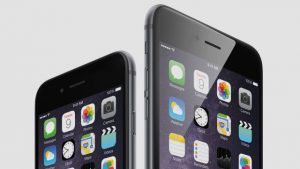iPhone Users May Receive Money From Settlement In ‘Batterygate’ Lawsuit Against Apple, But, How Much?
NEWS: 06.08.20 – iPhone users who previously experienced performance throttling issues with their older devices might be receiving a check in the mail courtesy of Apple if a multi-million dollar settlement, a deal struck by the company to avoid facing litigation in a class action lawsuit over the “batterygate” controversy, is given final approval by a California federal judge at the end of the year.
In May, the newswire service Law360 — which provides legal news and analysis on litigation (as well as policy and deals) for business lawyers — reported that U.S. District Judge, Edward J. Davila, via a hearing held on Zoom (the videoconferencing tool) preliminarily approved a $500M settlement to end litigation which accuses the Cupertino, California-based company of issuing software updates for its mobile operating system that slowed down the performance of specific Apple smartphones released between 2014 to 2016. If given final approval, the proposed deal would resolve dozens of lawsuits that were transferred (and consolidated shortly thereafter) to the judge in 2018.

The case — “Re: Apple, Inc. Device Performance Litigation (Case No. 5:18-md-02827)” — — is being heard by the judge in the U.S. District Court for the Northern District of California.
Back in February, the parties involved struck a deal following entry into mediation procedures, and, , per court filings, Apple agreed to a settlement of $500M (maximum) to be paid out to customers who previously owned the affected iPhones in question. The amount(s) awarded will depend on the number of persons who file claims. Reducing the total sum is class counsel expecting a reimbursement upwards of $93M for attorney fees and $1.5M for expenses.
According to Law360, class members would receive $25 each, however, if the payouts, attorney fees, and expenses don’t add up to at least $310M, they could receive up to $500 apiece until that minimum settlement amount is reached.
The settlement only covers class members in the U.S. and applies to individuals who installed a specific version of the iOS software — which caused a resulting slowdown in performance — onto the following iPhone models:
- iPhone 6
- iPhone 6 Plus
- iPhone 6s
- iPhone 6s Plus
- iPhone SE (first generation)
- iPhone 7
- iPhone 7 Plus
Not all previous owners of the Apple smartphones listed above will qualify for money from the settlement (it does not appear that, nor is it clear if, current owners are included as class members in the lawsuit).
After more than two years of litigation — despite the company admitting to throttling the performance of previous generation iPhone models with older batteries in order to avoid unexpected shutdowns of the devices, which, the suits allege prompted some customers to spend hundreds of dollars to upgrade to a new phone — the judge finally granted Apple a motion to dismiss claims by consumers of diminished battery life on their iPhones.
Apple “hotly” contested, as Law360 reported, the litigation from the “get-go” (of the case).
**AD: Boost Mobile has the new iPhone SE (second generation) from Apple available for $150 off MSRP. With service, the discount reduces its cost to $249 for the 64GB version, $399 for the 128GB version, and $499 for the 256GB version.
In March of this year, the newspaper publication the Washington Post reported that Apple previously had admitted back in 2017 — before it was hit with a class action lawsuit which alleged wrongdoing by the company — to throttling performance on purpose in order to preserve the life of older batteries and prevent them from experiencing battery fatigue.
The admission by Apple led to the establishment of a Battery Replacement Program which offered batteries at a $50 discount off of the regular price of $79 for the service (and ran from the end of 2017 through 2018), however, because the company didn’t divulge the reason for the issues being experienced by iPhone users, people claimed if they only had known that they could have solved the problem just by replacing the primary power source of their devices, they might not have purchased new phones as a result.
Apple has not admitted to any wrongdoing in the lawsuit against the company.
According to the Washington Post, the individuals whose names directly appear in the class action lawsuit will receive anywhere from $3,500 each. The remainder of the settlement money will be given out to users of the affected iPhone models (as listed above) provided that the owners are eligible. Subsequently, a claim must be filed in order to be awarded any payouts by Apple.
The dollar figures distributed among class members in the settlement are subject to change based on the total number of persons who come forward to file claims, and, as the newspaper reported, the amount(s) could “shrink” and be even less in the end.
At the hearing last month, Law360 reported that class counsel and attorneys for Apple both agreed that the deal was fair. Judge Davila, who felt it was reasonable and adequate, also concurred. Because of the current global pandemic surrounding the coronavirus, the deadlines for final approval by the judge have been extended and a decision will be rendered sometime in December.
Due to the fact that the company has the contact information of most (if not all) class members in the lawsuit, it is highly expected that there will be an above average claims rate in response to the multi-million dollar settlement by Apple.
A Note from the Author: Update 10/07/20- if you are a class member and want to take part in the $25 (up to) settlement from Apple, visit: www.smartphoneperformancesettlement.com
